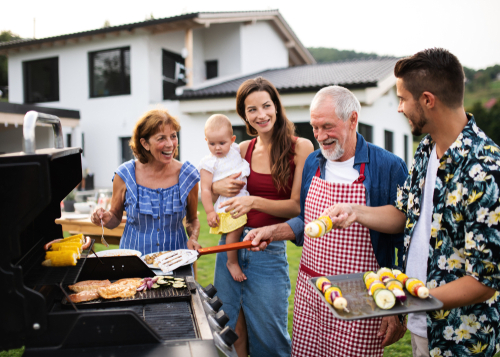 Whether you’re having your crew over for the big game and some BBQ, or you’re just grilling something for family dinner, you don’t want to run out of propane. While most portable tanks don’t come with a gauge, a good rule of thumb is that a standard 20-pound portable propane tank should get you through about 25 grilling sessions, or about 18 to 20 hours of grilling time. But who keeps track of how often and for how long they use their grill?
Whether you’re having your crew over for the big game and some BBQ, or you’re just grilling something for family dinner, you don’t want to run out of propane. While most portable tanks don’t come with a gauge, a good rule of thumb is that a standard 20-pound portable propane tank should get you through about 25 grilling sessions, or about 18 to 20 hours of grilling time. But who keeps track of how often and for how long they use their grill?
The good news is that there are easier ways to make sure you don’t run out of propane than marking it down on a calendar every time you grill.
Nobody wants to pull out a stopwatch every time they fire up the grill to keep track of propane use. But most of the portable cylinders that you’d hook up to your grill don’t have a gauge, so how do you know if your tank is running low?
Here’s three ways to make sure you never run out:
The easiest way to make sure you always have enough propane on hand to fire up the grill is to keep an extra tank on hand. Pico makes it easy to always have the propane you need for your grill with our convenient cylinder refill or exchange services.
Some people appreciate the swap-and-go convenience of a cylinder exchange. But savvy customers love the ease and the savings they get by refilling. When you own your propane grill tank and refill it, you can save money in a few ways.
First, you’ll save on the price of the propane. The difference can be up to $1.75 per gallon!
You also save because you’ll pay only for the propane you use. When you choose to refill your propane tank, you’re only buying the propane to fill the rest of your cylinder.
With propane grill tank exchange, you’re charged for all the propane in the cylinder—including the propane left in the tank when you take it to be exchanged. Because think about it: When you see your propane cylinder is starting to run low, your instinct is to take it in to exchange before you run out. So unless you run them until they’re completely empty, you could be wasting half a tank or more over the span of a few tanks.
Whether you need a cylinder refill or exchange, or you want to pick up an extra propane grill tank so you always have a spare, the Pico team is ready to assist you. Contact us for more information today.
 Where there are coastal storms and above-ground power lines, there will be power outages. It’s just a fact of living in our area. Tropical storms, hurricanes, and even summer thunderstorms are common here in South Florida—and they take down trees, which in turn knock out power.
Where there are coastal storms and above-ground power lines, there will be power outages. It’s just a fact of living in our area. Tropical storms, hurricanes, and even summer thunderstorms are common here in South Florida—and they take down trees, which in turn knock out power.
If you rely on a portable generator, you need to get in line at the gas station to fill jerry cans when a storm is forecast, or you need a safe place to store gasoline on your property. Also, a portable generator needs to be set up and turned on—outside—after the power goes out, probably while a storm is still raging, maybe in the middle of the night.
On top of that, they can be insufficient at keeping equipment you need running for the duration, whether it’s lights and the fridge, or lifesaving medical equipment.
But if you use propane to heat water, cook, and run other appliances and equipment in your home, you have a better option to stay safe and comfortable: a standby generator.
A standby generator, also known as a backup generator, is a propane or natural gas-fueled power source that is connected directly to your home’s systems and comes on within seconds of a power failure to keep your lights on and your refrigerator and A/C running until the utilities restore service. Propane generators are quiet, extremely efficient, and clean-burning, with low emissions.
A standby generator can also keep security systems on—giving you peace of mind, especially if the power fails while you’re away.
Size is the primary consideration when it comes to choosing the best standby generator for your household. A true whole-house generator can handle the demands of most extra-large homes, even during extended outages. Many people are comfortable with an “essential power” model, which will run key equipment such as the refrigerator, air conditioning, and lights in a specific area.
The Pico team will take the time to talk with you to determine how much power you need to run the appliances or systems necessary to feel safe and comfortable during an outage. We’ll ask you about what equipment or systems are most important to you in an emergency: refrigerator? Cooling systems? Life support equipment? We usually recommend going for about 20% extra voltage beyond what your appliances require.
Once we’ve determined the best size generator for your home and lifestyle, our expert technicians will take care of every aspect of the installation, ensuring it powers up your home without damaging your electronic equipment or appliances.
Peace of mind is priceless. But when you do the math, a standby generator usually makes sense compared to dealing with the expense (and hassle) of a power outage—especially if your neighborhood is prone to them. By keeping even just your essential systems running, a standby generator can help you avoid the cost of replacing spoiled food or the expense of a hotel room—if you can find one.
Another thing: According to Consumer Reports, a properly installed whole-house generator can increase the value of your home by as much as 5%. That’s a great return on your investment before you ever need to use it.
Ready to learn more? Contact the team at Pico today.
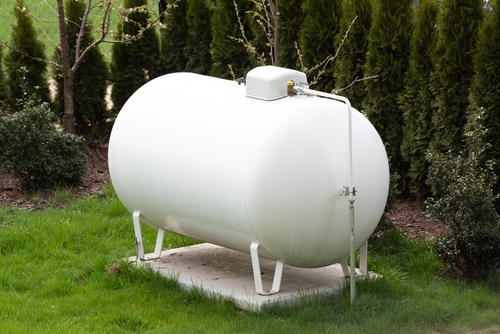 “Winter” in Miami typically means lows in the 60s. But in the last decade alone, we’ve experienced lows in the 40s every winter. Fortunately, while it can be uncomfortable, those dips are not low enough or last long enough to cause major problems like frozen pipes. But if you have an above-ground propane tank, you might be wondering if your propane supply can freeze or gel when temperatures plummet.
“Winter” in Miami typically means lows in the 60s. But in the last decade alone, we’ve experienced lows in the 40s every winter. Fortunately, while it can be uncomfortable, those dips are not low enough or last long enough to cause major problems like frozen pipes. But if you have an above-ground propane tank, you might be wondering if your propane supply can freeze or gel when temperatures plummet.
The good news is that the freezing point for propane is -44°F. Suffice it to say, you don’t need to worry about your propane freezing in Miami. Nevertheless, extended cold weather can still cause problems for the propane in your tank.
Like most substances, propane contracts in cold temperatures. When it’s extremely cold outside, the volume of propane inside your aboveground propane tank will shrink, and if it shrinks enough, it will result in a loss of pressure. When the pressure becomes too low, the propane inside your tank will not be able to reach your gas burner. That means you may not be able to run your propane appliances.
The good news is that it’s easy to prevent this.
The best way to prevent pressure problems in your propane tank is to keep your tank at least 30% full. The more propane is in your tank, the more positive pressure there will be. When the forecast is predicting a stretch of low temps, check the gauge on your tank, and call us for a propane delivery. Or, sign up for our convenient automatic delivery service. We factor the weather into our deliveries, so we’ll make sure you never run low.
If you have an underground tank, you will likely not experience any problems related to cold temperatures. The ground will insulate your tank, preventing any changes in pressure.
While smaller, portable propane tanks—like you may use with a firepit, patio heater, or grill—might be more prone to the pressure problems associated with cold temperatures, if the tanks are full or near full you should have no problems if you want to use them. And cold temperatures alone will not affect any of your outdoor propane equipment. Waterproof covers are a good way to protect these items from rain, which can lead to rust, and would provide sufficient protection in the unlikely event of freezing rain in our area.
Never keep portable propane tanks indoors—even in a garage or shed. Cylinders should always be kept in an open, well-ventilated, space, ideally out of the direct sun and at least 10 feet from your home.
While temperatures that can result in low-pressure problems are rare, it’s important to know the signs of a propane leak. Leaking propane smells like rotten eggs, skunk or dead animal.
Make sure everyone in your home can recognize the odor. If you smell gas:
Your safety is important to us! All Pico’s technicians are trained and certified to provide safe propane delivery and equipment installation and services. If you have any questions about this information or any other propane safety issues, contact us!
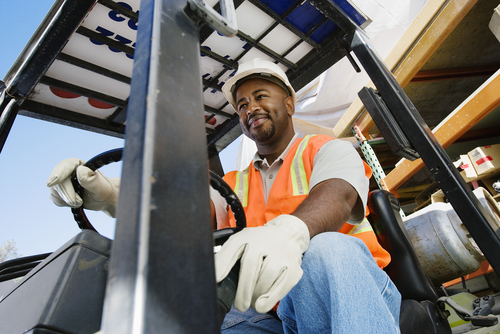 Forklifts are essential equipment for a broad range of businesses. And many of those businesses have discovered the advantages of using propane to fuel their forklifts. That’s because propane forklifts offer powerful performance advantages and efficiency compared to diesel or electric options. One of the key benefits of using propane fork is the time-saving convenience of the propane fueling system that keeps your operation running smoothly. Pico Propane’s commercial propane fuel system makes it easy to capitalize on all these benefits.
Forklifts are essential equipment for a broad range of businesses. And many of those businesses have discovered the advantages of using propane to fuel their forklifts. That’s because propane forklifts offer powerful performance advantages and efficiency compared to diesel or electric options. One of the key benefits of using propane fork is the time-saving convenience of the propane fueling system that keeps your operation running smoothly. Pico Propane’s commercial propane fuel system makes it easy to capitalize on all these benefits.
If you’ve used a cylinder exchange for your propane grill, the concept should be familiar. The difference is that your supply of propane tanks will be safely stored at your location, for quick and efficient refueling by your own team. There’s no need to take time off the job for a fuel run!
Our pros will evaluate your business’s needs for propane forklift cylinders and suggest a customized cylinder exchange program. We’ll set up sturdy, safe storage cages for your cylinders and thoroughly train your workers in the safe handling of propane cylinders. You’ll get the cylinders you need, when you need them. Easy!
When it comes to power, propane-fueled forklifts hold up to other options. They handle heavy loads better and are more capable when it comes to inclines compared to electric. Propane-powered forklifts will operate at 100% power as long as there’s propane in the cylinder. An electric forklift loses power as the battery drains—and when it’s out of power, it can take eight hours to recharge. With a propane forklift, refueling takes minutes. All your employees have to do is replace the empty cylinder with a full one, and the forklift is back on the job.
Faster refueling means less downtime. Plus, Pico provides bulk propane delivery with volume discounts, making propane even more affordable. Charging stations for electric forklifts take up space and require large up-front investments.
Propane-fueled forklifts also require less maintenance and downtime for repairs than gasoline or diesel-powered ones.
Propane forklifts are safe to use both indoors and outside. Diesel-powered forklifts cannot be operated indoors, and electric forklifts are inefficient outdoors and can’t operate in wet conditions. That makes propane forklifts the best option for top performance indoors or out!
When it comes to a carbon footprint, propane forklifts emit dramatically fewer greenhouse gases than diesel-powered forklifts. In the rare event of a propane leak, there’s no environmental damage.
Propane’s versatility is a plus for your business or job site. In addition to forklifts, propane can be used to power a wide range of equipment, including:
Construction companies, warehouses, distribution centers: Businesses throughout South Florida rely on Pico for customized commercial propane solutions.
Contact us today to learn about how our propane forklift cylinder exchange or other commercial propane services can help your business!
 If you’re a facilities manager for a school, college or university, you may be looking for efficiencies to help keep operational costs down. Well, class is session: educational facilities of all types can learn a lot from other institutions, such as hotels, hospitals and nursing facilities—which all get great value from the versatility of propane.
If you’re a facilities manager for a school, college or university, you may be looking for efficiencies to help keep operational costs down. Well, class is session: educational facilities of all types can learn a lot from other institutions, such as hotels, hospitals and nursing facilities—which all get great value from the versatility of propane.
Whether you are running a public or private institution, commercial propane can help you improve energy efficiency and save money while keeping your students comfortable.
Propane’s versatility as a source of energy is what makes it such an ideal fuel for a broad range of commercial and institutional uses. Propane can be used for heating, cooking, operating machinery, and even running vehicles. What’s more, is propane not only better for the environment—it’s also great for the bottom line, especially for educational institutions, where dollars are scarce.
Compared to other heating fuels—including electricity—propane heats quickly and burns cleanly, and costs on average 2.5 times less per Btu than heating with electricity, according to the U.S. Department of Energy.
That efficiency makes propane great for heating spaces—it delivers twice the heating energy than natural gas, and heats spaces more quickly and evenly than electricity. Also, propane heating equipment runs more efficiently than oil-heat equipment, requires less maintenance, and lasts longer. Whether you need to heat classrooms or dorms, propane offers clean, efficient and effective heat.
That same heating energy makes propane equally efficient at heating water, generating much more hot water at a cheaper cost per gallon. That makes propane a smart choice for commercial dishwashers in cafeteria kitchens, as well as for water heating for bathrooms and laundry rooms. Compact tankless propane water heaters can provide hot water to handwashing sinks in bathrooms and dorm kitchenettes on demand, rather than keeping huge tanks of water hot.
Professional chefs prefer gas for cooking for multiple reasons. They love the high heat and precision control they get from propane. It’s a key ingredient to turning out consistently great food. And, temperature control makes it easy to time the finish multiple different dishes at once. The high heat lets them sear and cook quickly. But it’s not just for fine dining—propane is also great for school cafeteria and dining hall kitchens. It can cost-effectively turn out large quantities of food.
You might be surprised to learn that clean-burning propane can fuel much of the landscaping equipment you use to keep school grounds and athletic fields manicured. Propane puts less wear on equipment, reducing downtime for maintenance or repairs. Propane is also extremely safe, with a very narrow range of flammability.
As hurricane season gets less predictable, and storms get stronger, reliable backup power is essential, particularly for colleges and universities with students living on campus. Propane-powered standby generators will come on automatically when the electricity goes down to keep essential buildings powered up.
Propane leaves a much smaller carbon footprint than most other sources of energy, particularly when you take into account that generating electricity is a big source of greenhouse gas emissions. Propane also doesn’t harm soil or groundwater – an important factor when it comes to determining whether a fuel is “green.”
Schools and universities are facing rising costs, and budgets for operational expenses are shrinking. Propane can help diversify your energy costs and protect you from rising electricity prices, while at the same time improving efficiency across your campus.
If you want to learn more about how propane can benefit your school or university, contact Pico’s commercial propane team: We’ll help evaluate your needs and show you all the ways propane can benefit your facilities, your student’s and the bottom line. Contact us today.
 Propane is a reliable, environmentally friendly energy source that offers much more than just heating and cooking. For South Florida homeowners, where heating needs are minimal, propane can power a wide range of appliances and systems, both indoors and outdoors. From increasing comfort to enhancing energy efficiency to delivering backup power in emergencies, propane is a versatile solution.
Propane is a reliable, environmentally friendly energy source that offers much more than just heating and cooking. For South Florida homeowners, where heating needs are minimal, propane can power a wide range of appliances and systems, both indoors and outdoors. From increasing comfort to enhancing energy efficiency to delivering backup power in emergencies, propane is a versatile solution.
As the threat of hurricanes becomes more severe, even for homes far from the coastal flood zones, a source of backup power is essential. A propane standby generator can help you and your family get through extended outages safely.
Propane-fueled stand-by generators are connected to your home and your propane storage tank, so they go on within seconds of a power failure. That means you don’t need to wrestle a portable generator out of the garage and get it set up and started, while messing with fuel, possibly in the dark or in treacherous conditions. It also eliminates the need to search for gas to power a portable generator.
Your refrigerator keeps running, preventing the expense of replacing food. Medical equipment keeps running, protecting loved ones. You can opt for a whole-house generator, or just essential power to key equipment or a specific space.
According to Consumer Reports, a properly installed whole-house generator can increase the value of your home by as much as 5%. That’s a great return on your investment, even before you even need to use it. And having a back-up generator can lower home insurance costs. Many insurance plans will offer discounts on your homeowner’s insurance plan if you install a standby generator.
Beyond emergency generation, propane is a smart and efficient choice for a wide variety of every-day appliances that use hot water or heat, including washers and dryers, dishwashers, and space heaters. But it’s also great for fueling appliances that can make your home a little more fun, inside and out, that can add value to your home.
1. Fire Pits & Patio Heaters
Propane fire pits are perfect for creating a cozy atmosphere on your patio. In South Florida’s mild climate, these fire pits provide the warmth and ambiance of a traditional fire without the hassle of wood. Propane patio heaters allowing you to entertain outdoors or enjoy a quiet evening outside even when temperatures dip.
2. Pool and Spa Heating
Even though South Florida is warm most of the year, the cooler winter months can make your pool or spa a bit too chilly for comfort. Propane pool heaters offer fast, efficient heating, allowing you to extend your swimming season and enjoy a comfortable soak no matter the temperature.
3. Outdoor Grills
Nothing beats the precision and control you get cooking with gas. That’s why it’s the first choice of professional chefs in the kitchen—but it delivers the same precise temperature control on the patio. A propane grill makes outdoor cooking as easy as turning on your kitchen cooktop: Flip a switch, turn a knob and set your heat level. A propane grill is hot and ready to go in about 10 minutes. Compare that to 30 minutes or more to get charcoal hot.
4. Tankless Water Heaters
Propane tankless water heaters deliver hot water on demand and are more energy-efficient than traditional electric heaters. They are especially beneficial in South Florida, where managing energy costs is a priority, providing endless hot water without taking up space or wasting energy.
5. Mosquito Traps
Propane-powered mosquito traps are a must-have for outdoor spaces in South Florida, where mosquitoes are a constant nuisance. These traps help control mosquito populations without the use of harmful chemicals, making your backyard more comfortable and enjoyable.
Don’t miss out on all the benefits this versatile fuel can deliver. From practical appliances to make your day-to-day easier, to easy upgrades to make your home feel more welcoming, propane packs power. Reliable, on-time propane delivery from the team at Pico makes it even easier to enjoy.
Contact us to learn more today.
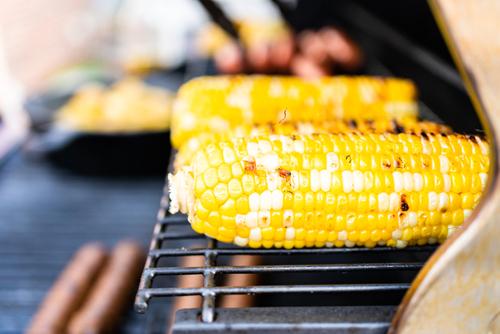 From easier cooking to healthier foods to safety, there are plenty of reasons why propane is the favorite choice for outdoor grilling. Foodies and professional chefs prefer the precision and power of cooking with gas, and it’s true in a kitchen or on a patio. Even if you just want to grill up some chicken or burgers for the family on a Saturday night, propane makes the process easy, from lighting up to cleaning up.
From easier cooking to healthier foods to safety, there are plenty of reasons why propane is the favorite choice for outdoor grilling. Foodies and professional chefs prefer the precision and power of cooking with gas, and it’s true in a kitchen or on a patio. Even if you just want to grill up some chicken or burgers for the family on a Saturday night, propane makes the process easy, from lighting up to cleaning up.
Here’s what you need to know!
You can get a propane tank for any size grill.
The smallest are three to five pounds and are perfect for small portable grills. You can pick them up at large grocery stores, big box stores, camping supply stores and even hardware stores. They last for between 5 and 7 hours of grilling.
The most common size for a full-size portable grills is 20 pounds. While most portable tanks don’t come with a gauge, a good rule of thumb is that a standard 20-pound portable propane tank should get you through about 25 grilling sessions.
Who keeps track of how many times they’ve used their grill? You could go nuts with a chart next to your spatula and tongs. Or, you can use these handy tricks to check how much propane is left in the tank.
Of course, to truly ensure you always have propane for the grill is to hook up to your home’s supply with a built-in grill. Our team of pros can help you create the perfect propane grilling setup for your outdoor space.
Not sure you know how to replace your grill tank? It’s as easy as 1-2-3.
To reconnect a full tank, simply follow those steps in reverse. Be sure the tank valve is closed when you reconnect the pressure regulator.
If you’re using a small camping grill with a three- or five-pound tank, it’s even easier. The tank typically just screws onto the valve. Follow the instructions for your grill.
Browse our selection of deluxe built-in models with multilevel grills, griddle attachments and side burners, rotisseries and more for restaurant-quality results from all the leading brands including Aurora, Echelon, Choice and Legacy. Need a freestanding model? We can help you there as well, with models that offer all the options of a built-in without the build-out. Contact us for more information today.
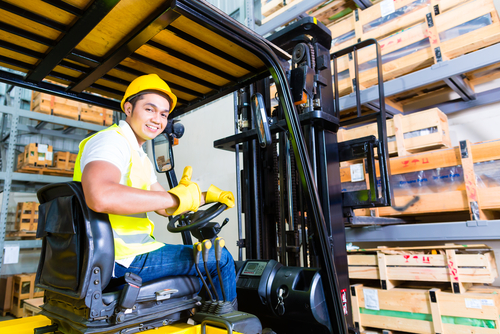 Loading docks, warehouses, construction sites, no matter how you use them for your business, you know that your propane forklifts are workhorses that save time, improve efficiency, and keep your operation running smoothly. But any heavy equipment can be dangerous if not operated correctly, and while propane is extremely safe, it does require safety measures, like any fuel.
Loading docks, warehouses, construction sites, no matter how you use them for your business, you know that your propane forklifts are workhorses that save time, improve efficiency, and keep your operation running smoothly. But any heavy equipment can be dangerous if not operated correctly, and while propane is extremely safe, it does require safety measures, like any fuel.
Make sure your seasoned employees as well as new hires stay aware of proper forklift operation. Holding regular safety briefings and trainings can help make sure complacency doesn’t result in dangerous mistakes.
Here are 10 important tips for safe operation of propane forklifts:
Keeping your forklift equipment in good condition is important to ensure safe operation. Teach your team to do a check each day before starting the engine—like a pilot before every flight. Make sure tanks are installed correctly, valves are clean, etc.
Generally, propane forklifts should get a thorough tune-up annually or every 2000 hours, whichever comes first. Follow the manufacturer’s recommendations for a tune-up schedule for your specific equipment.
Regular maintenance should include inspections and testing of brakes, steering, and propane systems. Any problems should be addressed promptly by a qualified technician.
The safest and most efficient option for refilling forklift cylinders is to use an exchange program that makes sure your cylinders are filled properly and are in good condition. Pico’s forklift cylinder exchange program is designed to keep your business running smoothly. Our experts will work with you to evaluate your needs and set up a customized program and delivery schedule—daily, weekly, monthly, or will-call—and then set you up with sturdy, safe storage cages for your cylinders. We’ll thoroughly train your workers in the safe handling of propane cylinders. And you’ll get the cylinders you need, when you need them.
Having a great team—both internal and external—can make a big difference in safety. Find out why Pico is the first choice for commercial propane and forklift cylinder exchange in the Miami-Ft. Lauderdale area. Contact us for more information today.
 The 2024 Atlantic hurricane season is off to a good start, with early-season record breakers already in the books. South Florida is regularly within the “cone of probability” for tropical storms and hurricanes, but, it doesn’t take a the biggest storm to down lines and knock out electricity, leaving you without power for days. Getting slammed by another storm like Ian is not an “if” scenario, but a “when” scenario and it’s more important than ever to be prepared. One of the best ways to protect your home and property is with a backup generator or standby propane generator that comes on within seconds of a power failure to keep your lights on and your refrigerator, furnace and a/c running until the utilities get the lines back up.
The 2024 Atlantic hurricane season is off to a good start, with early-season record breakers already in the books. South Florida is regularly within the “cone of probability” for tropical storms and hurricanes, but, it doesn’t take a the biggest storm to down lines and knock out electricity, leaving you without power for days. Getting slammed by another storm like Ian is not an “if” scenario, but a “when” scenario and it’s more important than ever to be prepared. One of the best ways to protect your home and property is with a backup generator or standby propane generator that comes on within seconds of a power failure to keep your lights on and your refrigerator, furnace and a/c running until the utilities get the lines back up.
A standby propane generator will keep security systems on as well—giving you peace of mind, especially if the power fails while you’re away.
There are a lot of “pros” to propane generators: They are quiet, extremely efficient, and clean-burning, with low emissions. They are also less expensive (and less stinky) to run than gas-powered portable options—which won’t run your whole home, either. (Just keeping a portable generator full of gas during an extended outage will get expensive quickly, not to mention potentially having to wait on long lines for more fuel.)
The only downside to a backup generator is that it costs a bit more than a portable gas-fueled generator. But, when you do the math, the investment usually makes sense compared to dealing with the expense (and hassle) of a power outage—especially if your neighborhood is prone to them. By keeping even just your essential systems running, a standby generator can help you avoid the cost of replacing spoiled food, or the cost of a hotel room—if you can find one.
Another thing: According to Consumer Reports, a properly installed whole-house generator can increase the value of your home by as much as 5%. That’s a great return on your investment, before you ever need to use it.
There are a wide variety of size options, from “essential power” models that will run key equipment such as your refrigerator, heat and lights, to true whole-house generators that can manage the demands of most extra-large homes, even during extended outages. Talk to one of the pros on the Pico team: We will help determine the best size generator for your home and needs. Here are some key points to consider:
We also offer portable propane generators that run off smaller propane cylinders, like those for grill tanks. It’s a great option for basic needs versus the hassle, smell and noise of a gas generator.
One of the key benefits of a propane backup generator is that you have the fuel to run it already. Plus, there’s no need to wrestle a portable generator out of the garage and get it set up and started, while messing with fuel, possibly in the dark or in treacherous conditions.
Have questions about how a whole-house generator can provide peace of mind through hurricane season and beyond? We sell and install generators from Kohler and Generac, and portable propane generators from Firman: Stop by our showroom or contact us any time. We’re here to help!
 It’s happened to everyone: You’ve got a crowd of hungry mouths and a pile of chicken, burgers or bbq ready to go to discover your grill won’t light, the flames are low, or there’s an unexpected hissing sound coming from your grill tank. We’ve got solutions to help you troubleshoot these common grill tank problems. But it’s better to make sure your propane grill is ready to go ahead of time, so make sure you test and clean your grill ahead of any major gatherings.
It’s happened to everyone: You’ve got a crowd of hungry mouths and a pile of chicken, burgers or bbq ready to go to discover your grill won’t light, the flames are low, or there’s an unexpected hissing sound coming from your grill tank. We’ve got solutions to help you troubleshoot these common grill tank problems. But it’s better to make sure your propane grill is ready to go ahead of time, so make sure you test and clean your grill ahead of any major gatherings.
If the hissing continues, or it’s not a particularly hot or sunny day, you may have a leak. Disconnect the tank, place it in a well-ventilated area and let it empty out. Once it’s empty, you can return it. Never transport a leaking propane cylinder.
If the grill won’t light, it could be a problem with the igniter on your grill. The two most common types of propane grill igniters are piezo, which do not require batteries or electricity, and battery-powered or push-button igniters.
If you have a battery-powered igniter, replace the batteries.
If you have a piezo igniter, see if the burners can be lit with match or lighter. Inspect the grill for cracks in the ceramic tube and breaks in the metal tip. Make sure wires are plugged into the spark generator. If these steps do not work, contact a professional to properly diagnose and correct the problem.
Pico has a great selection of top-quality grills, that can take your grilling to the next level. Consider a built-in option that connects to your home’s main propane supply, and you won’t have to worry about empty grill tanks or many of these other problems.
Contact us today for more information!